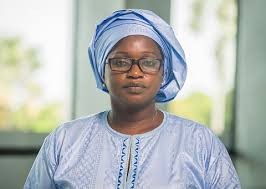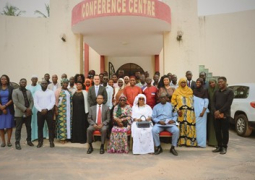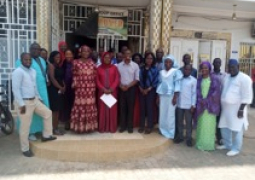
According to the findings, the unit has only 15 incubators and a single radiant warmer to care for some of the country’s most vulnerable newborns. When the committee arrived, two babies were sharing one incubator, something the matron admitted was far from ideal.
The vice chair stated that the matron further revealed that during the peak season, this number can jump to four babies squeezed into one incubator, a practice that undermines infection control and compromises proper neonatal care.
The lone radiant warmer, which should ideally support one infant at a time, is often used by up to four babies. Nurses told the committee that the number of babies waiting for their turn is sometimes longer than the hospital’s capacity to respond quickly.
Committee members were informed that the mortality rate remains high. But nurses stressed that many babies arrive at the unit already in critical condition because referrals from other facilities come too late. “At that stage, all we can do is stabilize them,” one nurse said, noting that early intervention is often impossible due to equipment shortages.
Hon. Cham said during the tour, the committee also heard that mothers in the Intensive Care Unit sometimes have no option but to hold their babies on their laps for warmth while waiting for a machine to free up. The staff further flagged insufficient phototherapy lamps and inadequate incubators, making an already difficult situation more desperate.
In their recommendations, the committee urged the Ministries of Gender and Health to ensure consistent supply of essential drugs, medical equipment and ambulances to all centres.
Giving his submission, Hon. Lamin Ceesay of Kiang West argued that many of the challenges outlined should have been addressed during budget sessions. “We allocate resources here. This report doesn’t appear at the right time. And this is not the first time the issue has come before us. We failed the people each time,” he said, pointing specifically to the life and death incubator situation.
Hon. Amie Colley, of Foni Berefet, echoed the frustration, saying the committee hears the same complaints every year at EFSTH despite huge sums allocated to the Ministry of Health. “We are talking about EFSTH. How about the hospitals in rural Gambia? We have done our part as MPs. The government should step up,” she insisted.
Upper Saloum MP Hon. Alhagie Mbowe called for a strategic plan from the ministries responsible, arguing that without a clear roadmap, the problems will continue resurfacing every oversight period.
For Hon. Alfusainey Ceesay of Sami, the absence of key ministries during such crucial presentations was unacceptable. He argued that if they sat in the chamber to hear the testimonies and MPs’ arguments firsthand, they would better understand the urgency and craft more effective responses.




